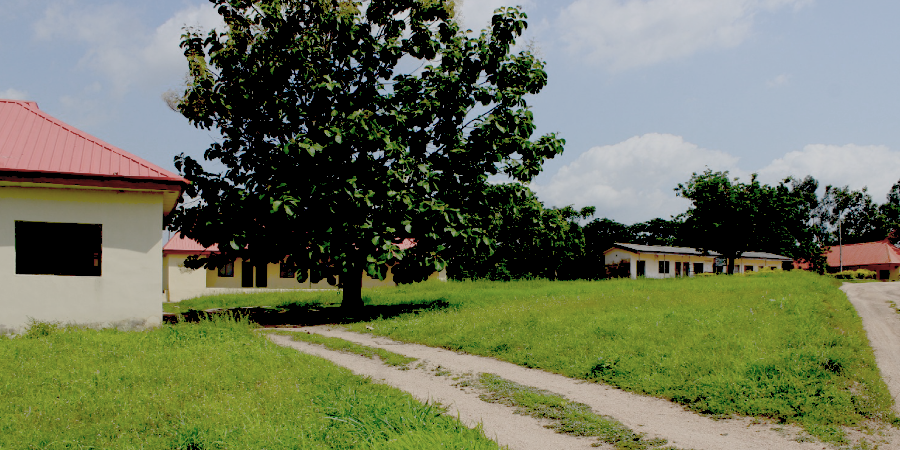
Buruku Local Government Area
Buruku Local Government is one of the 23 Local Governments in Benue State of Nigeria.
Created:
1989 out of the present Gboko Local Government Area
However, Buruku Local Government once existed in 1982, during the second republic (then, was called Ambighir Local Government) but was phased out along numerous Local Governments in the country in 1984, by a military Government, which came to power on December 31, 1983.
Boundaries:
Buruku Local Government is bordered:
- East: Logo and Katsina-Ala Local Government Area
- West: Ushongo Local Government Area
- North by Guma or Tarkaa Local Government Area, and
- South by Gboko Local government Area
Ethnic Composition:
- Tiv people (The dominant)
- Etulo, and
- The Nyifon people.
History have it that, the Hausa people at Abakwa, Etulo Council ward of Buruku Local Government had settled there before Independence. However, the Hausa people of Abakwa are not much considered in the affairs of the Local Government, due to their sparse population.
Population:
Buruku Local Government has a population of 203,721 people as of 2006 Celsus.
Landmass:
It has a landmark of about 1,246 square kilometres. On the globe, Buruku Local Government lies on the geographical coordinates of 10° 37′ 0″ N, 7° 14′ 0″ E; for the latitude and longitude lines respectively, taking equator as the reference point.
Council wards:
- Shorov Council Ward
- Etulo Council Ward
- Mbaityough Council Ward
- Mbaazagee Council Ward
- Mbaakura Council Ward
- Binev Council Ward
- Mbapen Council Ward
- Mbaya Council Ward
- Mbakyongo Council Ward
- Mbaatirkyaa Council Ward
- Mbayaka Council Ward
- Mbakyaan Council Ward, and
- Mbaade Council Ward
For administrative convenience:
The Local Government is sub-divided into four developmental areas, namely:
- Buruku,
- Tyowanye,
- Abwa, and
- Mbalagh development areas.
Major markets:
Tyowanye, Abwa, Adi, Ugbema, Ortese, Jingir, Uga, Usen, Fada, Kur, Tyogbenda-Mbajov, Anshav, Ashamena, Tomanyiin, Anvambe, Tomataan, Anvambe, Garagboghol, Ashibi, Diwa, Nyamatsor, Abakwa among others.
Many of these markets occurs once after four days. However, for religious reasons, there are some markets that hold once in a week for a peculiar day, so as to prevent them from holding on Sundays. Almost all of the markets that hold once in a week to opt them from Sunday occurrence, were set by the missionaries in early 1910s. They include:
- Tomanyiin, Sati, Tomataan among others.
- The Tomanyiin market hold only on Thursdays,
- Sati market on Saturdays and
- Tomaataan market on Fridays.
Features:
The topography and physical features of Buruku is characterised by Rivers: River Buruku, also call River Benue, River Ambighir, River Amile and many others. Streams, Ponds, Swampy areas, Loose soil, Thick forest, among others.
Agriculture:
The Agricultural profession of the Buruku people can never be over-emphasised. Buruku is basically an agrarian area; it is one of the leading producers of agricultural products in Benue, thus making Benue State, the Food Basket of the Nation. Buruku land is generally fertile. It is the surest Local Government, one can rightly turn for food and cash crops. Buruku has a diverse agricultural produce which include:
rice, beans, cashew, cassava, yam, okro, palm nuts, cocoa nuts, guava, pawpaw, soyabeans, ground nut, dry fish, fresh fish, vegetables, melon, groundnut, Timber tree, economic trees like Orange and mangoes, among others.
Infact, Buruku boasts of one of the longest stretches of river systems in the country with great potential for a viable fishing industry, dry season farming through irrigation and for an inland waterway through irrigation.
Mineral resources:
Buruku area is endowed with many minerals which include limestone, sharp sand, salt, gravel, natural gas, clay, coal, among others.
Temperature:
The temperature of Buruku town fluctuates between 25°C to 31°C.
People:
A reasonable percentage of the Buruku people are literate, Buruku Local Government has produced a bunch of professors which are serving at various levels both at home and in diaspora.
And, It has also produce catalogue of medical professionals and administrators as well as civil servants that are contributing numerous to the growth of the nation Nigeria.
Religion:
The religion life of Buruku people is seen in three distinct group or factions.
There is a dominating Christian group,
A Muslim group, and
The group of traditional worshippers who believes in the worshiping of “Akombo” and “Tsav”, which are merely inform of traditional believe or ancestral heritage.
For the Christian people of Buruku, their bases for Christian life can be trace back, during the pre-colonial era, through the Dutch Reformed Church Mission (DRCM) of South Africa, taking the gospel to Tiv people in 1911s and to the presence Buruku people in early 1920s.
Some of the noticeable Christian Churches attended by Christians in Buruku Local Government include:
- Universal Reform Christian Church,
- Catholic Church,
- Reformed Evangelical Mission,
- Deeper life Church,
- Living Faith church, among others.
Culture:
The Local Government of Buruku possesses a rich and diverse cultural heritage which finds expression in colourful clothes, exotic masquerades, sophisticated music and dances.
Traditional dances from Buruku have won acclaim at state and national cultural festivals. These dances include Ingyough, Ange, Anchanakupa, Swange, Kureke and Tomsule dance.
The Buruku Kwagh-hir theatre provides memorable entertainment in its dramatization of Benue folklore and social commentary.
